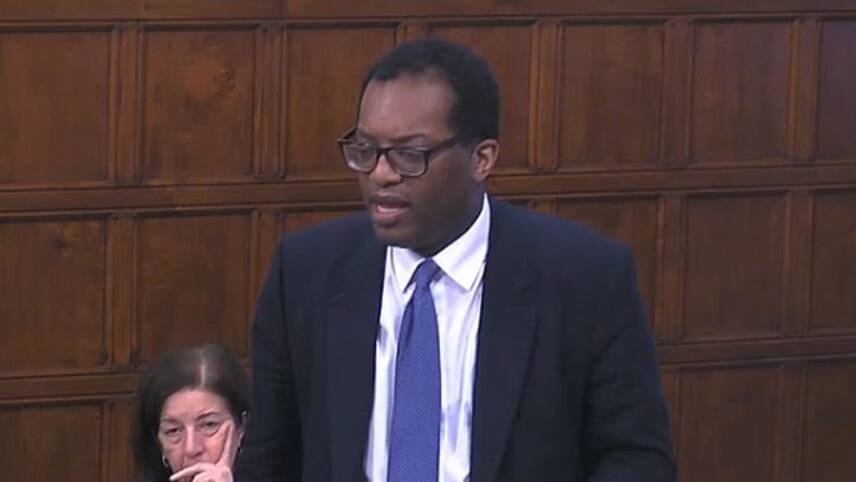Register for free and continue reading
Join our growing army of changemakers and get unlimited access to our premium content

Kwarteng also announced that the Government would consult on issuing tougher EPC standards for private-owner landlords
During a House of Commons debate on energy efficiency measures and net-zero buildings, Business, Energy and Clean Growth Minister Kwarteng fielded questions from MPs on the UK Government’s approach to decarbonising the UK’s commercial and domestic building stock, which accounts for approximately 40% of the UK’s carbon emissions.
During the session, Kwarteng claimed that the UK Government is “absolutely committed to seeing how we can support the RHI beyond the date on which it expires”.
The RHI is due to close in March 2021, with the Government yet to outline how it will promote low-carbon heating beyond that point. From April 2021, households signed up to the scheme will continue to receive payments until the end of a seven-year agreement.
The RHI was put in place by the Government as a means to convert 12% of UK homes to renewable heat by the end of 2020. Current trajectories suggest it will reach 8-10%.
While Government figures claim that the RHI has delivered payments of £2,800 annually to those signed up, all while saving 5.2 tonnes of carbon annually, it has been criticised for failing to provide financial value. In 2018, the Public Accounts Committee (PAC) concluded that the RHI had failed to provide value for money for the £23bn it was set to cost taxpayers.
The Committee on Climate Change has suggested that the UK would require 15 million homes to be fitted with heat pumps or hybrid heat pumps by 2035.
Last year, the Science and Technology Committee’s ‘Clean Growth: Technologies for meeting the UK’s emissions reduction targets’ report outlined a lack of replacements for the RHI as one of the 10 major shortfalls of Government efforts to date to reach net-zero emissions by 2050.
The report calls for the urgent development a clearer strategy for decarbonising heat that includes large-scale trials of different heating technologies, such as heat pumps and hydrogen gas heating, operating in homes and cities to build the evidence base required for long-term decisions.
Green homes
That report also called for an incentive scheme for energy efficiency home improvements, a topic that Kwarteng was also questioned on during the session.
Kwateng noted that the proposed Future Homes Standard would act as a catalyst for reducing household carbon emissions and would perform better than the zero-carbon scheme that was scrapped in 2015.
“The Government feel that the future homes initiative is much more realistic and better in terms of reducing carbon emissions in houses than the initial zero-carbon scheme,” Kwarteng said. “That scheme allowed for offsetting, whereas the future homes standard will concentrate on lowering absolutely levels of emissions. I think that is a much better way of approaching the problem.”
The Future Homes Standard is due to come into effect in the latter half of 2020, covering England only. In its current form, it includes a headline goal to reduce the carbon intensity of new builds by 75% by 2025, which ministers plan to deliver through fresh mandates for housebuilders on triple glazing, low-carbon heating systems, onsite renewable generation and energy-efficient building fabrics. The 75% target is down from an initial proposal of 80%.
Kwarteng highlighted the £5m in green finance pledge to help homeowners make their buildings more energy efficient. The minister also announced that the Government would consult on issuing tougher standards for private-owner landlords in regards to EPC ratings for 2030.
“We aspire for private landlords not to get properties to EPC band E but to make investments to improve their properties to band B or C by 2030. That is a significant improvement and a step in the right direction,” he added.
Commenting on the announcements, Steve Collins, director of premier EcoEnergy said: “We welcome the measures being taken by government to improve home energy efficiency and specifically the commitment to supporting the RHI beyond its current term.
“However, we would like clarity as to whether RHI will remain in its current form. If the government is to achieve its climate targets, it is imperative to entice homeowners and businesses who live in older buildings which make up a substantial proportion of current emissions.”
Matt Mace


Please login or Register to leave a comment.